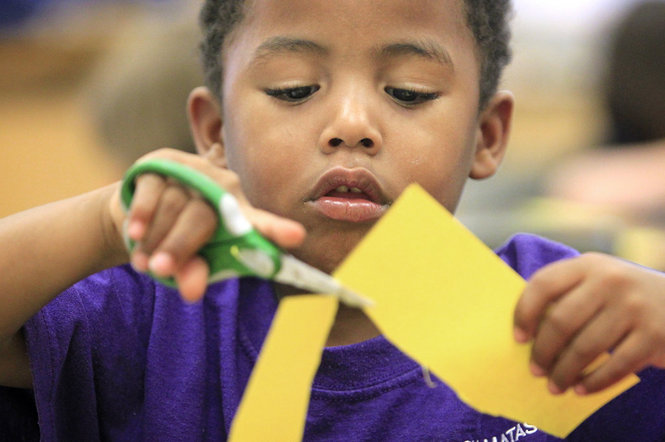It’s hard to picture a classroom without hand-drawn pictures on the walls, or a school assembly without the sound of jubilant young voices singing. But increasing cuts to education funding paired with a strong focus on academic testing in public schools mean the arts are being left behind.
>>A recent study showed there is one arts instructor for every 275 students in North Carolina, and that the state is one of 24 that do not require an arts credit for graduation. GPA-focused students often forgo arts classes, instead taking honors classes that will boost their grades, while students in poorer school districts are often >>not given the choice to take drama, music, or dance.
Some say this >>shift away from creative instruction is the next natural step for schools that are required to focus on preparing children to pass standardized tests, and who risk losing funds and resources if they fall below certain achievement deadlines.
According to more and more studies, this hyper-focus on test preparation is misguided. In fact, experts say, early arts education leads to across-the-board success, both academically and in terms of future career achievement.
Students who take arts classes have a rate of academic achievement >>more than four times higher than their peers who stick to less creative pursuits. These kids are three times less likely to miss school, and perform better on standardized math and reading tests than those who don’t get a chance to join a school band or try their hand at line drawing or pottery.
Long term, adults who studied arts in their early years tend to be more wealthy, one study showed, and tend to >>hold more patents and achieve more in their chosen professions. Even engineers and others who choose decidedly non-creative paths experience a measurably more productive professional life.
Yet funding for the arts is just one of many things that is falling by the wayside in North Carolina. Last week, public school instructors >>staged a “walk-in,” a silent protest against cuts to the education system that hinder their ability to create happy, successful students. As a percentage of the state’s budget, funding for education has fallen more than 15% in the past few decades.
And in the wake of No Child Left Behind and other programs that tie funding to testing, teachers have no choice but to shift their focus from singing, dancing, and drawing to more memorization of facts and drilling.
Funding for the arts in education benefits every single North Carolinian. The state’s class of arts workers is more than >>300,000 strong , but our technology industry is our crown jewel. And as those studies have shown, we cannot have a world-class workforce without laying the groundwork early on with music, arts, drama, and dance, and making sure educators have both the time and resources to teach it.

There are no comments
Add yours